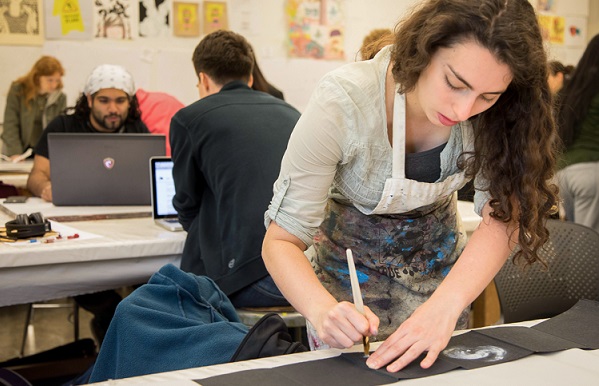Words by Maisie Levitt, Online News Editor
The British government has been discovered to be considering putting a limit on the number of students able to study creative degrees in order to control the amount of unpaid student debt. As part of their spending negotiations, the government has targeted the creative arts and other degrees due to graduates typically making lower salaries, making them less likely to pay back their student loans.
There are speculations that the Department for Education (DfE) is allegedly considering new A-level requirements to increase the entry difficulty, making the number of students accepted into creative courses smaller.
The universities regulator has already announced a funding cut of 50% of its arts subjects. This has been described as ‘catastrophic’ by artists and musicians.
Critics have expressed concerns about worker shortages in creative industries as a consequence. The vice-chancellor of Falmouth University, Anne Carlisle, has said “how amazing that this government should think they could do workforce planning like this”, with those in charge making “simplistic assumptions about [the] worth [of those in creative industries]”.
Another speculation is that loans will not be granted to those studying the degrees in question, in order to reduce the number of people able to apply in the first place. This would negatively impact students from poorer backgrounds, leading to less diverse creative industries.
There are very few predicting the government to reduce the £9,250 per year tuition fee, even though this would lead to smaller amounts of student debt in the long term. Outstanding student loans reached £140bn in 2020. Instead however, the government is considering lowering the student loan repayment threshold, meaning that graduates would have to begin repaying their student debts sooner.
Nick Hillman, former special adviser to the government, calculated that cutting the repayment threshold from £26,000 to £19,000 would result in more graduates repaying their loans before their loans are written off after 30 years.
The former education secretary, Gavin Williamson, suggested that arts degrees were “dead-end courses that leave people with nothing but debt”. In response to this attitude, critics have stated that by limiting numbers on creative courses, the country will end up with more young people unable to attend university at all.
The Prime Minister, Boris Johnson, studied Classics. The Secretary of State for Business, Kwasi Kwarteng, studied Classics and History. Chancellor of the Exchequer, Rishi Sunak, studied PPE (Philosophy, Politics and Economics).

